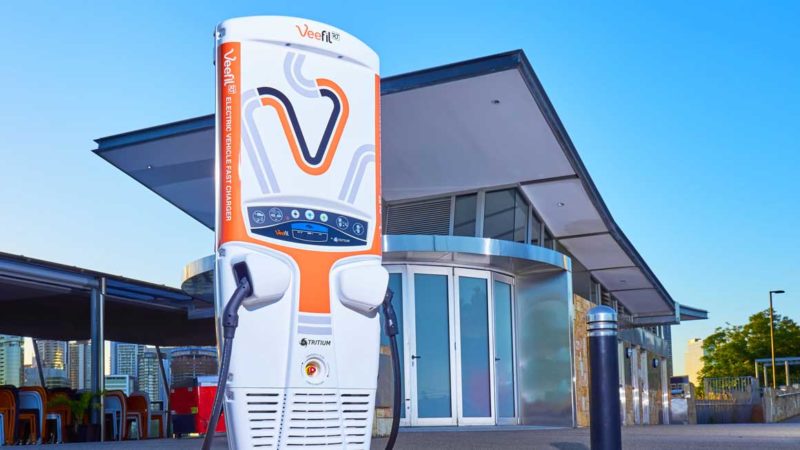The Australian Renewable Energy Agency has announced that the first grants under a new Future Fuels Fund are now open for applications, offering $16.5 million in funding round to support the deployment of new rapid changing infrastructure across Australia.
Funding will be offered through the recently established $71.9 million Future Fuels Fund, and will support the deployment of new rapid charging stations in identified black spots, filling gaps in Australia’s public EV charging network and helping to support greater uptake of electric vehicles.
“The first round of the Future Fuels Fund will encourage additional EV fleet uptake in metropolitan areas and reduce concerns about their capacity to travel longer distances in regional Australia,” federal energy and emissions reduction minister Angus Taylor on Monday.
“The program will make it easier for consumers in regional Australia, as well as fleet owners, taxi operators and businesses, to access the infrastructure they need to embrace new technologies.”
The fund will target new charging infrastructure across all of Australia’s eight capital cities, as well as regional centres including Newcastle, Wollongong, the NSW Central Coast, Geelong, Gold Coast and the Sunshine Coast. Each of these regional centres are expected to receive at least four new rapid charging stations as part of the funding round.
ARENA said that it was seeking funding applications from electric vehicle charging providers that were able to deliver new infrastructure throughout the identified black spot areas, and were able to install new charging stations with at least 50kW of charging capacity within the next two years.
To meet ARENA’s grant funding requirements, the electric vehicle charging stations will be required to source electricity from renewable energy sources, ensuring vehicles will be charged with zero emissions energy.
The agency flagged that future rounds of the would focus on the development of hydrogen and biofuels, as well as supporting business fleets to transition to all-electric vehicles. The agency said that it would adjust its focus on latter rounds in response to developments in the transport sector, to best meet the need of regional communities and support ongoing electric vehicle uptake.
ARENA added that it would seek to maximise the amount of private sector investment supported by the funding around.
The $71.9 million Future Fuels fund had been earmarked in the most recent federal budget, handed down in October last year, and was part of a larger package of funding that will extend the life of ARENA for a further ten years.
ARENA CEO Darren Miller said the new funding round would support businesses across Australia to expand their opportunities in the low emissions vehicle sector, including electric vehicles, hydrogen fuelled transport and biofuels.
“Through this initial round, we are addressing one of the barriers to roll out of new vehicle technologies by significantly increasing the number of fast charging stations available to consumers across Australia, and reducing charging blackspots in both metropolitan and regional centres,” Miller said.
“This funding by the Australian Government will stimulate the fast charging market and drive private sector investment, and will build on our considerable body of work in this sector.”
“As electric vehicles continue to become more competitive, it is important we have the recharging infrastructure in place to give motorists confidence they can choose an EV and recharge it conveniently and cost effectively,” Miller added.
The funding announcement follows the release of the ‘future fuels’ discussion paper by Angus Taylor, which the energy minister used to dismiss electric vehicles has been too costly as a method of reducing greenhouse gas emissions.
Analysis included in the discussion paper has been panned by electric vehicle advocates and transport sector experts as over inflating the costs of electric vehicles, not using like-for-like comparisons with petrol or hybrid vehicles, and criticised the paper for overlooking the role of renewable energy.


